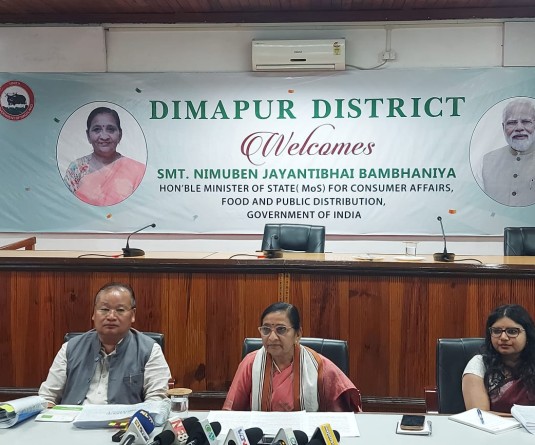
DIMAPUR, OCTOBER 17 (MExN): The Nagaland Voluntary Consumer’s Organisation (NVCO) has expressed strong opposition to the state government’s proposal to partially lift the toll gate ban, highlighting the negative impact past toll tax collections have had on the public. According to NVCO, previous toll tax collections led to widespread harassment of vehicle owners and drivers on highways and byways, contributing to price increases in both essential and non-essential goods.
In the past, toll taxes were collected by municipal and town councils in collaboration with the Nagaland Police, various organizations, associations, unions, and even factions. These collections were conducted at check gates managed by the police along highways across the state.
NVCO pointed out several instances where truck drivers were reportedly assaulted over demands for toll payments, which led to protests, strikes, and transport blockades. They noted that the extensive taxation and illegal cash collections tarnished Nagaland’s reputation as a Christian state.
A standing order issued by the Chief Secretary on June 22, 2009, prohibited the collection of taxes or cash by any organization or government department at check gates on Nagaland’s highways. This order, which was reinforced in December of the same year, followed a high-level meeting chaired by the Chief Minister. Furthermore, a 2014 judgment by the Gauhati High Court, Kohima Bench, explicitly banned any association or organization from collecting cash on highways. This ban was strengthened when the Governor of Nagaland took the initiative to enforce a blanket prohibition on toll collections, a move widely welcomed by the public.
However, with the government now considering lifting this ban, NVCO has raised concerns, especially as a significant toll center is reportedly planned between Dimapur and Kohima. NVCO emphasized that the Goods and Services Tax (GST) has already increased the cost of essential commodities, making any additional toll taxes unwelcome.
NVCO president Kezhokhoto Savi stated that toll tax collection should be reserved for firms or contractors who have invested their own funds in road or bridge projects, as outlined in a Memorandum of Understanding (MoU) between the government and the construction firm.
Savi noted that such arrangements are beneficial, as they allow private firms to recover their investments over time by collecting tolls, provided the rates are regulated by the government. He argued that no organization has the right to collect toll taxes without having invested in road or bridge construction or maintenance.
“With the deplorable condition of our roads and bridges, it is questionable why the government is so eager to lift the toll tax ban without ensuring proper maintenance and improvements,” Savi stated.





